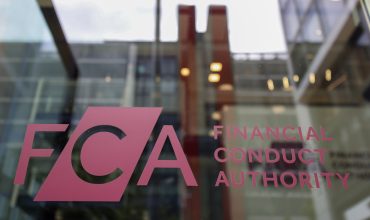
- Crypto Regulation
- FCA
- Retail Investing
Britain’s £775 Billion Crypto Gambit: FCA Reopens Retail Market
6 minute read

How the FCA’s Reversal on Retail Crypto Access Could Reshape Europe’s Digital Asset Landscape—or Reveal the Limits of Cautious Innovation.
Key Takeaways
- The FCA lifts its four-year retail ban on cryptocurrency ETNs effective October 8th, granting ordinary investors access to Bitcoin and Ethereum products previously restricted to institutional buyers.
- Potential ISA inclusion could unlock portions of £775 billion in tax-advantaged assets, positioning the UK to surpass continental rivals in retail crypto investment if regulatory approval proceeds.
- Asset managers including 21Shares, WisdomTree, and VanEck are launching retail-focused Bitcoin and Ethereum ETNs through platforms like Saxo and Stratiphy, testing demand in a market analysts project could expand by 20%.
Introduction
After four years of regulatory exile, British retail investors can once again buy cryptocurrency products through mainstream investment platforms. The Financial Conduct Authority’s decision to lift its ban on crypto exchange-traded notes, effective October 8th, marks the biggest expansion of UK retail digital asset access since the prohibition began in 2021. Yet beneath the headlines of liberalization lies a messier reality—one that shows Britain’s ambition to reclaim relevance in global crypto markets and the genuine difficulty in regulating an asset class that doesn’t fit existing categories.
The numbers are striking. Individual Savings Accounts, Britain’s tax-advantaged investment vehicles, hold £775 billion across more than 22 million accounts. If crypto ETNs qualify for ISA inclusion—a question the FCA hasn’t resolved—the UK could become Europe’s dominant retail crypto market almost overnight. It’s an appealing prospect for asset managers who’ve watched European competitors capture €972 million in crypto ETP inflows during the third quarter alone, while US crypto ETFs attracted $29.4 billion through August.
Key Developments
The FCA’s decision follows months of consultation and reflects what regulators call increased market maturity. Seventeen crypto ETNs already listed on UK exchanges, previously off-limits to retail investors, are now accessible through recognised platforms. The regulatory setup shows the FCA’s conflicted stance. While ETNs get the green light, the regulator keeps its ban on crypto derivatives—futures contracts, options, and contracts for difference remain forbidden.
This selective approach reflects a specific view: ETNs, structured as debt instruments that track crypto prices, fit within existing regulatory frameworks. Direct crypto derivatives don’t. Asset managers didn’t wait around. 21Shares, WisdomTree, and VanEck moved quickly to prepare Bitcoin and Ethereum ETNs for retail distribution through platforms including Saxo and Stratiphy, betting that early market entry will pay off, especially if ISA eligibility comes through.
Market Impact
The European precedent cuts both ways. Germany and several continental jurisdictions have allowed similar products for years, creating a developed market with 152 crypto ETNs listed across European exchanges as of August. The third quarter saw record inflows of €972 million to European crypto ETPs, pushing year-to-date assets to €19.3 billion. But the UK starts from far behind. Trading volumes for crypto ETNs have averaged just £624,000 daily on British exchanges—0.59% of continental activity. That gap shows the real challenge: moving from institutional to retail demand takes more than regulatory approval.
The US market shows what retail appetite actually looks like. American crypto ETFs pulled in $29.4 billion through August, with products like the iShares Bitcoin Trust posting 72.6% returns as of August 31st. Those numbers will appear in UK marketing materials, disclaimers or not. Analysts reckon the UK crypto market could grow 20% after ETN availability, though nobody’s certain. Growth depends on investor education, platform integration, marketing spend, and—crucially—the ISA eligibility decision. Without tax-advantaged status, crypto ETNs compete against established asset classes that offer familiarity and regulatory certainty built over decades. ISA inclusion matters because it creates real capacity for crypto allocation that could match or exceed European peers.

Strategic Insights
The timing puts the UK behind early movers but allows it to benefit from growing institutional acceptance of digital assets. Financial services firms see this as a starting point, not an endpoint. The products test the waters for broader crypto integration within traditional wealth management, where early wins could speed regulatory approval for more instruments. The FCA’s phased approach suggests this isn’t finished business. Current consultations on stablecoins and other digital asset frameworks point to more product launches ahead, creating opportunities for asset managers ready to meet changing regulatory standards. But ETN structure creates problems that don’t square with consumer protection goals. ETNs work as unsecured debt obligations, promising returns linked to an underlying asset’s performance.
Unlike exchange-traded funds, which actually hold securities or commodities, ETNs depend entirely on the issuer’s creditworthiness. If an issuer hits financial trouble, ETN holders become unsecured creditors—a risk that seems at odds with the FCA’s protective mandate. The regulator’s decision to approve these structures while blocking other crypto products amounts to a bet that institutional issuer quality will provide enough protection. The UK’s post-Brexit push for regulatory flexibility might distinguish it from EU frameworks while keeping credibility with international capital markets, though whether that distinction helps or hurts remains unclear.
Expert Opinions and Data
Industry voices highlight the contradictions in this regulatory shift. “An ETN is a debt instrument, not a spot Bitcoin ETF,” said Susie Violet Ward, CEO of Bitcoin Policy UK. “It’s an odd choice to reopen the door through a credit-linked product rather than one backed by the underlying asset itself.” The observation gets at something important: investors get Bitcoin price exposure, but through a structure that adds counterparty risk instead of providing direct ownership of digital assets. The FCA has responded by doubling down on risk warnings rather than addressing the structural issues, noting these investments lack Financial Services Compensation Scheme protection and urging caution around volatility.
Research from investment platform IG suggests the regulatory change could drive substantial increases in crypto-related retail investments. The data tells a story of opportunity and obstacles: €972 million in net inflows to European crypto ETPs in Q3 2025, a quarterly record; $29.4 billion in net inflows to US crypto ETFs through August 2025; £775 billion across more than 22 million ISA accounts; 72.6% returns for the iShares Bitcoin Trust as of August 31st; 17 crypto ETNs now available to UK retail investors; and 152 crypto ETNs listed across European exchanges, showing the mature continental market Britain wants to challenge.
Conclusion
The FCA’s regulatory reversal opens doors for asset managers and investment platforms while making the UK more competitive in European crypto markets. The careful approach fits broader regulatory trends toward controlled crypto integration rather than throwing markets wide open, setting Britain up for gradual growth in crypto investment products while keeping consumer protection frameworks that might support longer-term market development. But whether this approach leads to market leadership or permanent second-place status isn’t clear.
The £775 billion question—ISA inclusion—will largely decide the outcome. Success requires more than regulatory permission: investor education, product design, platform integration, and scaling daily trading volumes from their current weak levels to something closer to continental norms all matter. For now, the UK has reopened a door it kept shut for four years, letting retail investors into a market that still defies traditional regulatory boxes while producing returns that guarantee attention. The experiment, like much in crypto, will end in either vindication or cautionary tale. Time will tell which.







